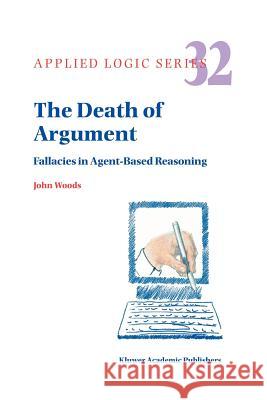The Death of Argument: Fallacies in Agent Based Reasoning » książka
The Death of Argument: Fallacies in Agent Based Reasoning
ISBN-13: 9789048167005 / Angielski / Miękka / 2010 / 378 str.
This book is a sequel to the classic work, Fallacies: Selected Papers 1972 - 1982 (1989), coauthored with Douglas Walton, and is a further major contribution to the Woods-Walton Approach to the logic of fallacious reasoning. No one disputes the formitable accomplishments of modern mathematical logic; but equally no one seriously believes that classical logic is much good for the analysis of real-life argument and reasoning, or that it is the best place in which to transact the business of fallacy theory. One of the principal innovations of the book is its adaptation of systems of logic to the particular requirements of fallacy theory. The book develops logical analyses which take into account such features of real-life cognitive agency as resource- availability and computational complexity.
The book is also an invitation to interdisciplinary cooperation, linking the relevant branches of logic with computer science, cognitive psychology, neurobiology, forensic science, linguistics, (including conversational analysis and discourse analysis) and argumentation theory.
Another distinctive feature of Woods approach to fallacy theory is its recognition of the highly defeasible character of fallacy-attributions. On this view, reasoning is fallacious only in relation to the cognitive target that the reasoner seeks to hit, the standard required for its attainment, and the cognitive resources available to the reasoner. Accordingly the so-called Standard Treatment of the fallacies is seriously misconceived.
Getting the fallacies right is an extremely important task for logic, indeed a central part of its mandate. It is a task much more avowed than performed. The Death of Argument is a major attempt to redress this inbalance.











